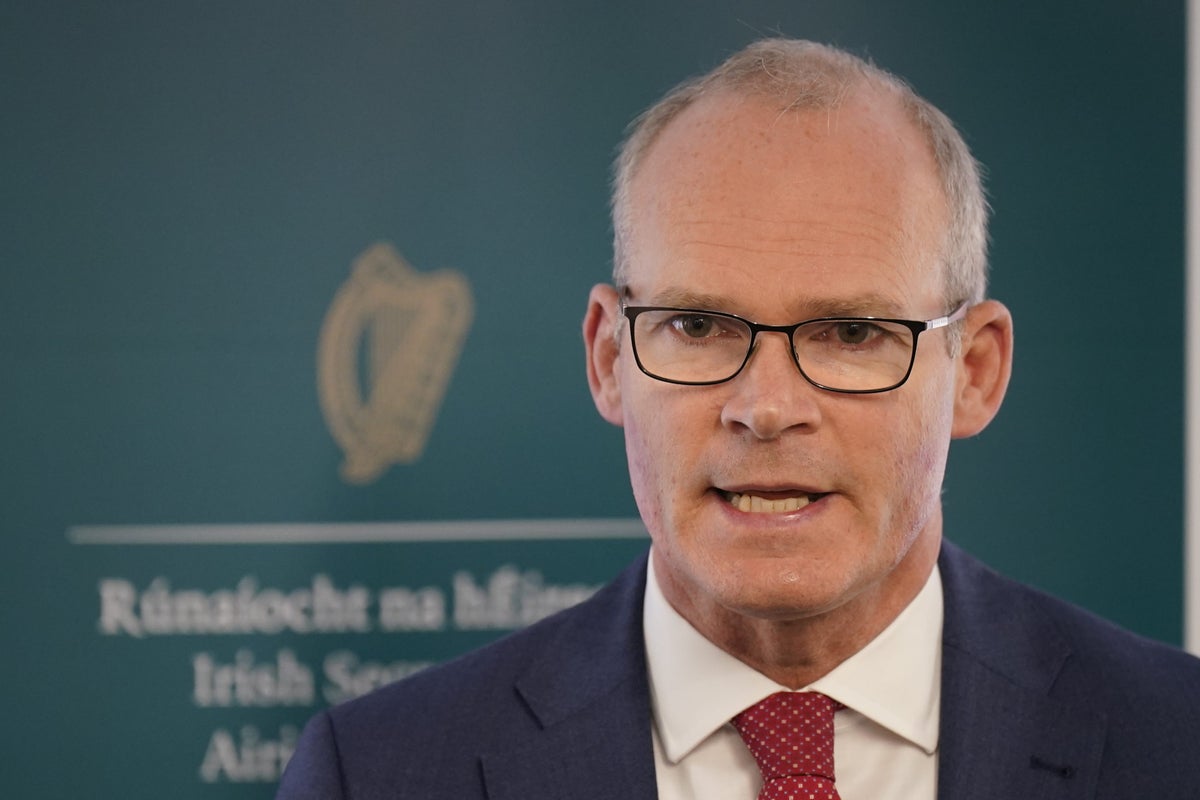
The UK Government has yet to decide whether to call an election in Northern Ireland, a senior Irish minister has said.
Foreign Affairs Minister Simon Coveney was commenting after holding talks with Northern Ireland Secretary Chris Heaton-Harris in Belfast to discuss the ongoing political uncertainty at Stormont.
Mr Heaton-Harris faced criticism for failing to set a date for a new poll last Friday when a legislative deadline for calling the election passed.
He had previously vowed to announce a poll the minute the deadline lapsed.
The 24-week deadline for forming a functioning assembly and powersharing executive in following May’s election ran out at midnight on Friday.
A DUP boycott of the devolved institutions, in protest at Brexit’s Northern Ireland Protocol, has prevented an administration being formed in the wake of the election result.
While the UK government is now under a legal responsibility to call a fresh election within 12 weeks, it could move to amend legislation at Westminster that would either extend or remove that time limit.
Junior minister at the Northern Ireland Office Steve Baker insisted on Wednesday that Mr Heaton-Harris would still call an election.
Mr Coveney said he believed a final decision had not been taken.
However, he said he expected Mr Heaton-Harris would be providing clarity soon.
On Tuesday, the Northern Ireland Secretary pledged to provide an update on what steps he intended to take next in “due course”.
Mr Coveney said he reiterated the Irish government’s view to Mr Heaton-Harris during their meeting on Wednesday that an election would be “unhelpful”.
“We don’t have clarity on a way forward as of yet, but certainly we’re not going to have to wait weeks for that clarity,” he said.
Mr Coveney added: “I made it clear that the Irish Government’s position is that we don’t believe an election at this time is a good thing for Northern Ireland, in the context of the pressures that families and households are facing now, and also in the context of the reality that we’ve had an election only a number of months ago.
“So, we discussed options and views on a way forward. No decisions have been finalised yet, but I don’t think we’re going to have to wait for very long before decisions are made in relation to the way forward.
“There really are only two options here: there is a legal obligation to set a date for an election, or else there will need to be new legislation to avoid an election at this time.”
During a Westminster debate earlier on Wednesday, Mr Baker told MPs: “In line with his legal obligation, my right honourable friend the Secretary of State will soon confirm the date of the next Northern Ireland Assembly election, as required by law.
“Following that election, and regardless of the result, the Northern Ireland parties really do need to come together to restore the devolved institutions and lead the people of Northern Ireland through the challenging times ahead.”
Mr Heaton-Harris has acknowledged he has a legal duty to call an election but has avoided setting a date, prompting Northern Ireland’s chief electoral officer, Virginia McVea, to apologise to election workers who are on stand-by to assist on the basis that polling day would be December 15.
The Government has vowed to secure changes to the protocol, either by a negotiated compromise with the EU or through proposed unilateral domestic legislation, the Northern Ireland Protocol Bill, which would empower ministers to scrap the arrangements without the approval of Brussels.
The European Commission has said the latter approach would breach the terms of an international treaty and potentially prompt retaliatory action.
Mr Coveney added: “For us, we think that an election would be unnecessary and unhelpful at this time, that’s been the Irish Government’s view for some time.
“But these are difficult choices for the British Government and for the Secretary of State because of his obligations under NDNA (the New Decade New Approach agreement).”
On Tuesday, Mr Heaton-Harris expressed concern at the “enormous” £660 million-plus “black-hole” of an overspend facing the rudderless Stormont system in the absence of a powersharing executive, and made clear action would be needed to set a budget for Northern Ireland.
He also said he would be looking to cut the pay of MLAs.







